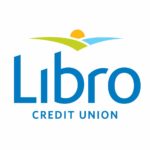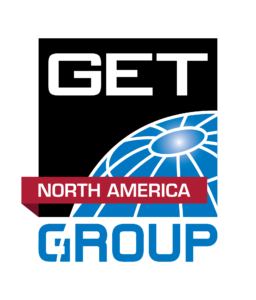Le français suit
STATUS: This review is now closed. Thank you for your participation!
Notice of Intent: DIACC is collaborating to develop and publish a Notice and Consent industry standard as a Component of the Pan-Canadian Trust Framework to set a baseline of public and private sector interoperability of identity services and solutions.
Document Status: These review documents have been approved as Draft Recommendations by the DIACC’s Trust Framework Expert Committee (TFEC) that operates under the DIACC controlling policies.
Summary:
The Notice and Consent Component defines a set of processes used to formulate a statement about the collection, use and disclosure of personal information, and to obtain a consent decision on that statement from a person authorized to do so. The Notice and Consent processes ensure that notice statements are accurately formulated according to defined requirements, that the person making the consent decision has the authority to do so, and that the management of that consent decision is possible.
The objective of the Notice and Consent Component is to ensure the ongoing integrity of the notice and consent processes by applying standardized conformance criteria for assessment and certification. A certified process is a trusted process that can be relied on by other participants of the Pan-Canadian Trust Framework.
The Notice and Consent Component builds on the Privacy baseline that is in development.
To learn more about the Pan-Canadian vision and benefits-for-all value proposition please review the Pan-Canadian Trust Framework Overview.
Invitation:
- All interested parties are invited to comment.
Review Documents:
Supporting Documents:
Period:
- Opens: September 9 at 23:59 PST | Closes: October 25, 2019 at 23:59 PST
Intellectual Property Rights:
Comments must be received within the 45-day comment period noted above. All comments are subject to the DIACC Contributor Agreement; by submitting a comment you agree to be bound by the terms and conditions therein. DIACC Members are also subject to the Intellectual Property Rights Policy. Any notice of an intent not to license under either the Contributor Agreement and/or the Intellectual Property Rights Policy with respect to the review documents or any comments must be made at the Contributor’s and/or Member’s earliest opportunity, and in any event, within the 45-day comment period. IPR claims may be sent to review@diacc.ca. Please include “IPR Claim” as the subject.
Process:
- All comments are subject to the DIACC contributor agreement.
- Submit comments using the provided DIACC Comment Submission Spreadsheet.
- Reference the draft and corresponding line number for each comment submitted.
- Email completed DIACC Comment Submission Spreadsheet to review@diacc.ca.
- Questions may be sent to review@diacc.ca.
Value to Canadians:
The Notice and Consent Component will provide value to all Canadians, businesses, and governments by setting a baseline of business, legal, and technical interoperability. The DIACC’s mandate is to collaboratively develop and deliver resources to help Canadian’s to digitally transact with security, privacy and convenience. The Pan-Canadian Trust Framework is one such resource. The Pan-Canadian Trust Framework represents a collection of industry standards, best practices, and other resources that help to establish interoperability of an ecosystem of identity services and solutions. The DIACC is a not-for-profit coalition of members from the public and private sector who are making a significant and sustained investment in accelerating Canada’s Identity Ecosystem.
Context:
The purpose of this Draft Recommendation review is to ensure transparency in the development and diversity of a truly Pan-Canadian, and international, input. In alignment with our Principles for an Identity Ecosystem, processes to respect and enhance privacy are being prioritized through every step of the PCTF development process.
DIACC expects to modify and improve these Draft Recommendations based upon public comments. Comments made during the review will be considered for incorporation into the next drafts and DIACC will prepare a Disposition of Comments to provide transparency with regard to how each comment was handled.
Guide d’examen des ébauches de recommandations pour l’aperçu de la composante « Avis et consentement » et le profil de conformité de l’avis et du consentement V1.0
Déclaration d’intention: Le DIACC collabore pour développer et publier une norme de l’industrie en matière d’avis et de consentement en tant que composante du cadre de confiance pancanadien afin d’établir une base d’interopérabilité des services et solutions d’identité dans les secteurs public et privé.
État des documents: Ces documents à examiner ont été approuvés en tant qu’ébauches de recommandations par le Comité d’experts du cadre de confiance (TFEC) du DIACC, qui est régi par les politiques qui contrôlent le DIACC.
Résumé
La
composante « Avis et consentement » définit un ensemble de processus
servant à formuler un énoncé sur la collecte, l’utilisation et la divulgation
des renseignements personnels, et à obtenir une décision relative au
consentement à propos de cet énoncé de la part d’une personne autorisée à la
prendre. Les processus d’avis et de consentement s’assurent que les avis sont
formulés avec exactitude conformément aux exigences définies, que la personne
qui prend la décision relative au consentement est autorisée à le faire et que
la gestion de cette décision est possible.
La
composante « Avis et consentement » a pour objectif d’assurer
l’intégrité continue des processus d’avis et de consentement en appliquant des
critères de conformité uniformisés pour l’évaluation et la certification. Un
processus certifié est un processus de confiance auquel peuvent se fier les
autres participants du cadre de confiance pancanadien.
La composante « Avis et consentement » repose sur les éléments de base du respect de la vie privée qui sont en cours d’élaboration.
Pour en savoir davantage sur la vision du cadre de confiance pancanadien et les avantages qu’il procure à tous, veuillez lire le document Aperçu du cadre de confiance pancanadien.
Invitation
- Toutes les parties intéressées sont invitées à faire des commentaires.
Documents à examiner
Documents de référence
Période
- Début: 9 septembre 2019 à 23 h 59 HP | Fin : 25 octobre 2019 à 23 h 59 HP
Droits de propriété intellectuelle
Les
commentaires doivent être reçus pendant la période de 45 jours indiquée
ci-dessus. Tous les commentaires sont assujettis à l’entente de contributeur du DIACC; en soumettant un commentaire, vous
acceptez d’être lié par les conditions qu’elle renferme. Les membres du DIACC sont
également assujettis à la politique sur les
droits de propriété intellectuelle. Tout avis d’intention de ne pas octroyer une
licence en vertu de l’entente de contributeur et/ou de la politique sur les
droits de propriété intellectuelle relativement aux documents à examiner ou à
des commentaires doit être donné dès que le contributeur et/ou le membre en ont
la possibilité, et en toute circonstance, pendant la période de commentaires de
45 jours. Les revendications au titre des droits de propriété
intellectuelle peuvent être adressées à review@diacc.ca. Veuillez indiquer « Revendication en matière de propriété
intellectuelle » dans l’objet.
Processus
- Tous les commentaires sont
assujettis à l’entente de contributeur du DIACC.
- Veuillez utiliser le formulaire
prévu à cet effet pour soumettre vos commentaires au DIACC.
- Assurez-vous d’indiquer le numéro de
ligne correspondant à chaque commentaire soumis.
- Le formulaire de soumission de
commentaires au DIACC doit être envoyé par courriel, dûment rempli, à review@diacc.ca.
- Questions :review@diacc.ca.
Valeur pour les Canadiens
La
composante « Avis et consentement » procurera de la valeur à
l’ensemble des Canadiens, entreprises et gouvernements en établissant une base
d’interopérabilité commerciale, juridique et technique. Le DIACC a pour mandat
de collaborer au développement et à la prestation de ressources visant à aider
les Canadiens à faire des transactions numériques qui sont sécuritaires et
commodes, et qui respectent leur vie privée. Le cadre de confiance pancanadien
est une de ces ressources. Il représente un ensemble de normes de l’industrie,
de pratiques exemplaires et autres ressources qui aident à établir
l’interopérabilité d’un écosystème de services et solutions en matière d’identité.
Le DIACC est une coalition sans but lucratif de membres des secteurs public et
privé qui effectuent un investissement important et soutenu pour accélérer l’écosystème de
l’identité du Canada.
Contexte
L’examen des ébauches de recommandations a pour but
d’assurer la transparence de l’élaboration et de la diversité d’un apport véritablement
pancanadien et international. Conformément à nos principes pour un
écosystème de l’identité, la priorité est accordée
aux processus visant à respecter et à renforcer la vie privée à chaque étape du
processus de développement du cadre de confiance pancanadien.
Le DIACC s’attend à modifier et à améliorer ces ébauches
de recommandations en fonction des commentaires du public. Les commentaires
faits pendant l’examen seront pris en compte pour être intégrés dans les
prochaines ébauches et le DIACC va préparer un document expliquant d’une façon
transparente comment chaque commentaire a été traité.





